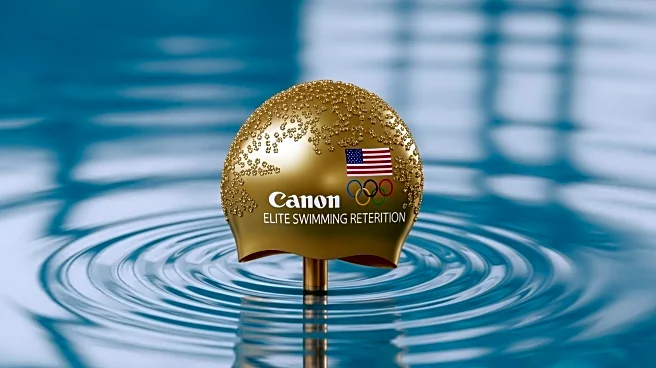What's Happening?
Ariarne Titmus, a four-time Olympic gold medalist, has announced her retirement from elite swimming, surprising fans and the sports community. Titmus, who is 25 years old, shared her decision through a social
media post, expressing that her priorities have shifted after taking time away from the sport. Despite expectations for her to compete in the 2028 Los Angeles Olympics, Titmus has decided to step back, citing personal reasons and health challenges she faced leading up to the Paris Games. Titmus retires as the world-record holder in the 200-meter freestyle and has accumulated 33 international medals throughout her career.
Why It's Important?
Titmus's retirement marks a significant moment in the world of competitive swimming, as she was considered one of the sport's top athletes. Her decision to retire could impact Australia's performance in future international competitions, including the Olympics. Titmus's departure also highlights the pressures and health challenges faced by elite athletes, prompting discussions on athlete well-being and career longevity. Her influence on the sport and her achievements have inspired many, and her retirement may lead to increased focus on supporting athletes in their transitions post-competition.
What's Next?
Swimming Australia and the global swimming community will likely reflect on Titmus's contributions to the sport and her legacy. There may be initiatives to support athletes in managing health challenges and career transitions. Titmus's retirement could also lead to opportunities for emerging swimmers to step into the spotlight and fill the gap left by her departure. The upcoming 2028 Los Angeles Olympics will proceed without Titmus, potentially altering the competitive landscape and medal prospects for Australia.
Beyond the Headlines
Titmus's retirement underscores the importance of mental health and personal fulfillment in sports. Her decision to prioritize life outside of swimming may encourage other athletes to consider their well-being and life balance. The cultural impact of her retirement could lead to broader discussions on the expectations placed on athletes and the need for supportive environments that allow them to thrive both in and out of competition.








